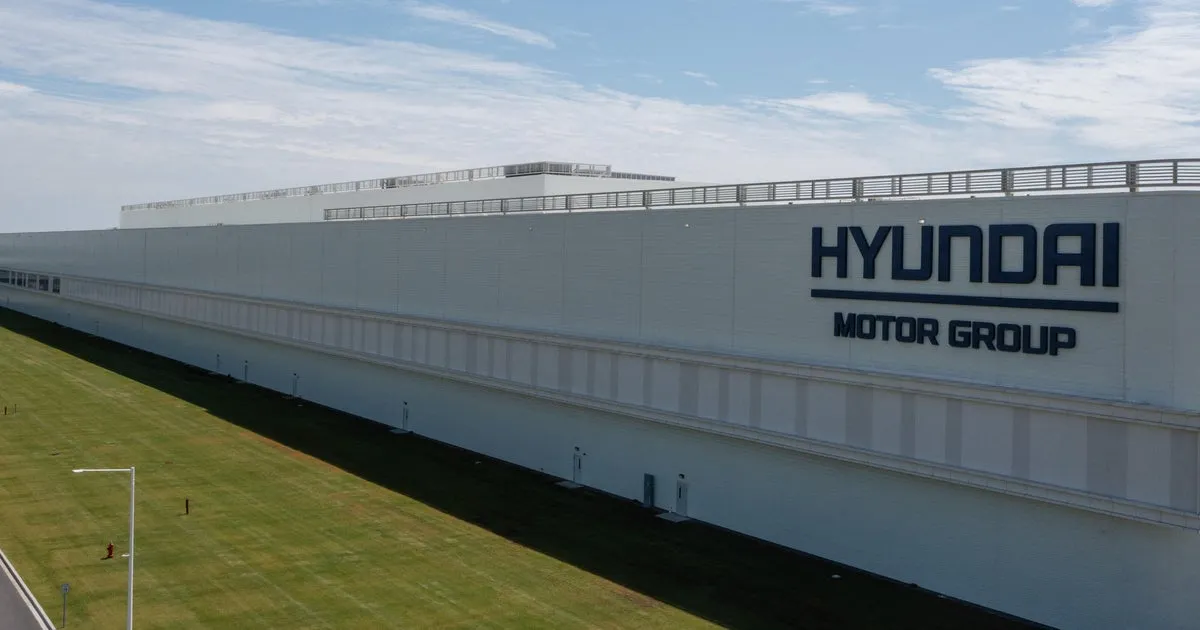
Hyundai announced on Thursday that the construction of its battery plant in Georgia will experience delays of up to three months. This decision comes after a significant immigration raid where hundreds of workers were detained. Hyundai Chief Executive Officer José Muñoz indicated that the enforcement action has left the plant, which is a joint venture with LG Energy Solutions, short of essential workers, as reported by Bloomberg.
During a press conference in Detroit, Muñoz explained, "This is going to give us a minimum of two to three months delay because now all these people want to get back." He emphasized the challenge of filling the vacant positions, noting that many of the detained workers are not currently in the U.S. This situation raises significant concerns about the future workforce at the Georgia battery plant.
The U.S. Immigration and Customs Enforcement (ICE) agents detained approximately 475 individuals suspected of illegally residing and working in the U.S. at the Georgia plant earlier this month. According to South Korea's Foreign Minister Cho Hyun, over 300 of those detained were South Korean nationals. Following negotiations between the U.S. and South Korea, a deal was reached to facilitate the release of the workers in ICE custody, with plans for a charter flight to return the South Korean nationals to their home country.
A recent poll conducted in South Korea revealed that nearly 60% of respondents expressed disappointment with the U.S. crackdown, describing the enforcement action as excessive. In contrast, around 31% of those surveyed acknowledged the inevitability of the ICE action, stating they understood the reasoning behind it. South Korean officials have voiced concerns that such immigration actions could potentially deter future investments from South Korea into the U.S.
Hyundai has opted not to provide further comments regarding the immigration situation when approached by CBS News. Similarly, LG Energy Solutions did not respond immediately to requests for comments about the raid and its implications for the battery plant project.
As Hyundai navigates these challenges, the focus remains on how the company will adapt to the workforce shortages and the potential long-term effects on their operations in the U.S. The situation continues to evolve, highlighting the intricate relationship between global companies and immigration policies.